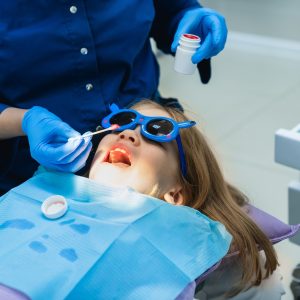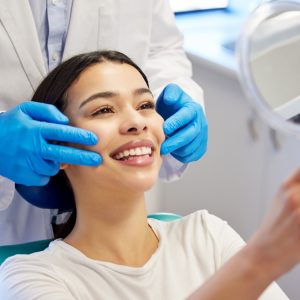How Often Should You Replace Your Toothbrush?
Maintaining optimal oral hygiene is more than brushing your teeth twice a day; it also involves taking good care of the tools you use for this daily ritual. Your toothbrush plays a pivotal role in keeping your teeth clean and your gums healthy, but it doesn’t last forever. As a general rule, it is recommended to replace your toothbrush every 3 to 4 months. There are also other factors to consider when replacing a toothbrush.
This blog post explores the critical aspects of toothbrush care and why timely replacement is key to maintaining oral health.
Manual vs. Electric Toothbrushes
When choosing a toothbrush, you can choose between manual and electric, and each has special advantages. In addition to being affordable and readily available, manual toothbrushes offer a range of head sizes and bristle kinds to accommodate individual tastes and dental health requirements.
However, electronic toothbrushes typically have advanced features like rotating or vibrating bristles at different speeds, programmed brushing intervals, and brush heads designed to address particular dental issues. Regardless of the model you select, regular replacement and correct use are the keys to a toothbrush’s ability to maintain dental cleanliness.
The Importance of Toothbrush Replacement
Your toothbrush’s bristles may grow frayed and worn over time, which can reduce their efficacy. Frayed bristles can harbour bacteria and are less effective at cleaning teeth, which could result in problems for your dental health. Replacing your toothbrush regularly helps guarantee that you’re always cleaning your teeth with a tool that works, preventing cavities, gum disease, and other dental issues.
Based on the recommendation, manual and electric toothbrushes should be replaced every 3 to 4 months. However, the replacement frequency may differ depending on wear, usage, and bristle deterioration. Indicator bristles on electric toothbrush heads frequently fade in colour to provide a visible cue when a replacement is needed.
Frayed or bent bristles on manual toothbrushes are a dead giveaway that they need to be replaced since they reduce the toothbrush’s ability to clean teeth properly. Because worn-out bristles can harbour bacteria and lose their ability to remove plaque properly, replacing them as soon as possible is essential to maintaining oral health.
Guidelines for Toothbrush Replacement
The Canadian Dental Association recommends replacing your toothbrush every 3 to 4 months. However, this can vary depending on individual use and the condition of the toothbrush. Here are some situations where you might need to replace your toothbrush more frequently:
- After illness: If you’ve been sick with a cold, flu, or mouth infection, it’s wise to start fresh with a new toothbrush to avoid re-introducing germs into your system.
- Wear and tear: Pay attention to the state of your toothbrush bristles. If they become frayed or misshapen before 3 months, it’s time for a replacement.
- Type of toothbrush: Some toothbrushes, particularly those with softer bristles, may need replacing sooner than others. Soft bristles tend to wear out faster, so check the condition of your toothbrush regularly.
- Family usage: If you share a bathroom with multiple family members or roommates, replacing your toothbrush more frequently is recommended. Sharing a toothbrush can transfer bacteria and germs, increasing the risk of oral health issues.
- Storage conditions: Storing your toothbrush in a humid environment, such as a closed container or cabinet, can promote bacterial growth and shorten lifespan. It’s best to store your toothbrush upright in an open area where it can air dry after use.
Tips for Maintaining Your Toothbrush
Proper toothbrush care can extend its lifespan and help it remain effective between replacements. Here are some essential tips:
- Rinse your toothbrush thoroughly with water after each use to remove remaining toothpaste and debris.
- Store your toothbrush upright and allow it to air dry. Avoid covering the toothbrush or storing it in closed containers, as this can encourage the growth of bacteria.
- Don’t share toothbrushes. Each family member should have a distinct toothbrush to prevent cross-contamination.
- Consider using a toothbrush sanitizer. While not a proper replacement, it can help reduce the number of germs on your toothbrush.

The Way Toward an Improved Oral Hygiene Regimen
One simple yet efficient method to improve your oral hygiene regimen is to remember to replace your toothbrush regularly. Preserving your toothbrush’s condition and making sure it is properly maintained are essential measures to protect your oral health.
Examine your toothbrush for a moment; is it time for a replacement? Maintaining a proactive replacement schedule is an easy yet important step toward a healthier smile. Remember that a clean, efficient toothbrush helps you maintain excellent oral health. Contact South Bolton Dental if you need a dental examination or have any questions concerning your oral hygiene regimen. We can help keep your smile healthy and radiant together!
At South Bolton Dental, we are committed to providing you with the best dental care and advice. If you have any questions about oral hygiene practices or toothbrush care, or if it’s time for your next dental checkup, don’t hesitate to contact us.









